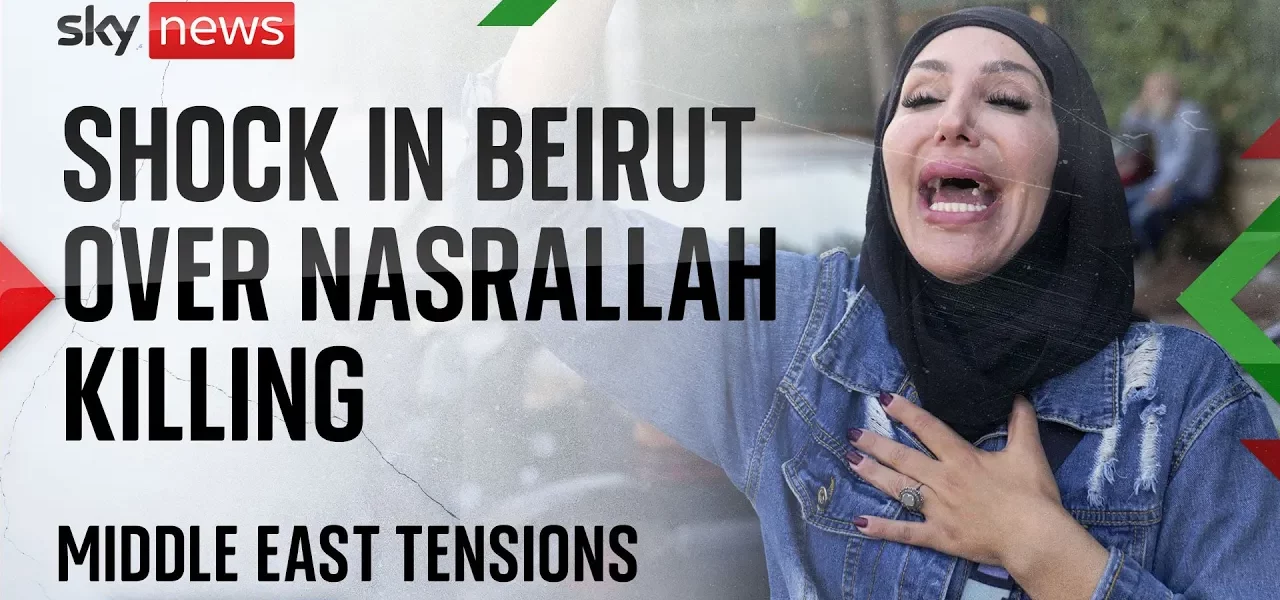A Night of Terror: The Impact of Israeli Airstrikes in Lebanon

This article delves into the recent Israeli airstrikes in Lebanon, the death of Hezbollah’s leader, and the overwhelming humanitarian crisis that has ensued. As tensions escalate, we explore the various dimensions of fear, devastation, and the fight for survival faced by the Lebanese people.
Introduction
On a fateful night in Lebanon, the capital city of Beirut experienced a series of harrowing Israeli airstrikes that left the population in a state of panic and uncertainty. This article examines the context and ramifications of these attacks, which were aimed at a significant figure within Hezbollah, the leader Hassan Nasrallah. The airstrikes not only targeted military strongholds but also resulted in widespread destruction and civilian suffering, raising urgent humanitarian concerns.
The Airstrikes and Their Immediate Impact
The Israeli airstrikes on Beirut marked a significant escalation in military actions in the region. These strikes were characterized by their intensity and frequency, creating an atmosphere of terror among the population. Here are some key aspects of the strikes:
- Targeting of Hezbollah Strongholds: The strikes focused on the southern suburbs of Beirut, particularly Dahia, which is known as a stronghold for Hezbollah.
- Destruction of Infrastructure: Many buildings were reduced to ashes, leading to significant loss of property and shelter for the local population.
- Casualties: Reports indicated that the death toll included civilians, with many families caught in the crossfire.
The Death of Hassan Nasrallah
The militant group’s television channel confirmed the death of Hassan Nasrallah, a figure many consider the backbone of Hezbollah. This section explores the implications of his death:
Significance of Nasrallah’s Leadership
Hassan Nasrallah has been a pivotal leader for Hezbollah, guiding the organization through numerous conflicts over the past three decades. His leadership encompassed military, political, and religious dimensions, solidifying his status as a founding father of the group.
Public Reaction
The announcement of his death triggered immediate reactions from his supporters:
- Public Mourning: Many took to the streets, expressing their grief and anger.
- Rise of Tensions: Reports of armed men roaming the streets surfaced, indicating a volatile atmosphere.
Humanitarian Crisis in Lebanon
The airstrikes and the accompanying chaos have resulted in a humanitarian crisis of alarming proportions. This section details the current situation:
Displacement of Families
As the strikes continued, many families were forced to flee their homes, seeking refuge wherever they could find safety:
- Families camping on beaches
- Emergency shelters overwhelmed
- Mass movement from one location to another in search of safety
Emergency Response
Aid agencies have struggled to respond effectively, highlighting the dire humanitarian needs:
- Emergency shelters are quickly filling up.
- The situation is described as nearing catastrophic levels.
- Individuals are forced to prioritize survival over personal safety.
The Regional Implications
The ongoing conflict has far-reaching implications not only for Lebanon but for the entire Middle East. This section discusses the broader consequences:
Political Ramifications
The loss of a key leader like Nasrallah may alter the political landscape within Hezbollah and Lebanon.
Potential for Escalation
As Hezbollah vows to retaliate, the risk of further military confrontations increases:
- Hezbollah’s response with rocket volleys.
- Possible escalation into a wider regional conflict.
Conclusion
The recent events in Lebanon have painted a grim picture of ongoing conflict, loss, and suffering. The Israeli airstrikes, coupled with the death of Hassan Nasrallah, have not only devastated Hezbollah but have also plunged the Lebanese people into a humanitarian crisis. As the situation develops, it is crucial for the international community to respond and assist those affected. It is a time for solidarity and support for the people of Lebanon in their hour of need.
For more information on the current situation in the Middle East, you can explore our related articles on regional conflicts and humanitarian crises.
“`




